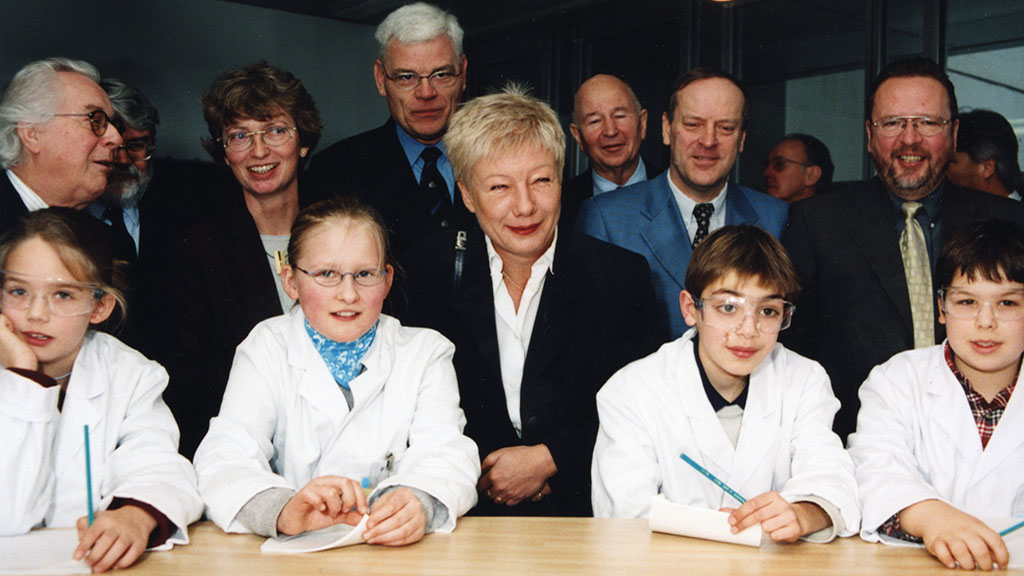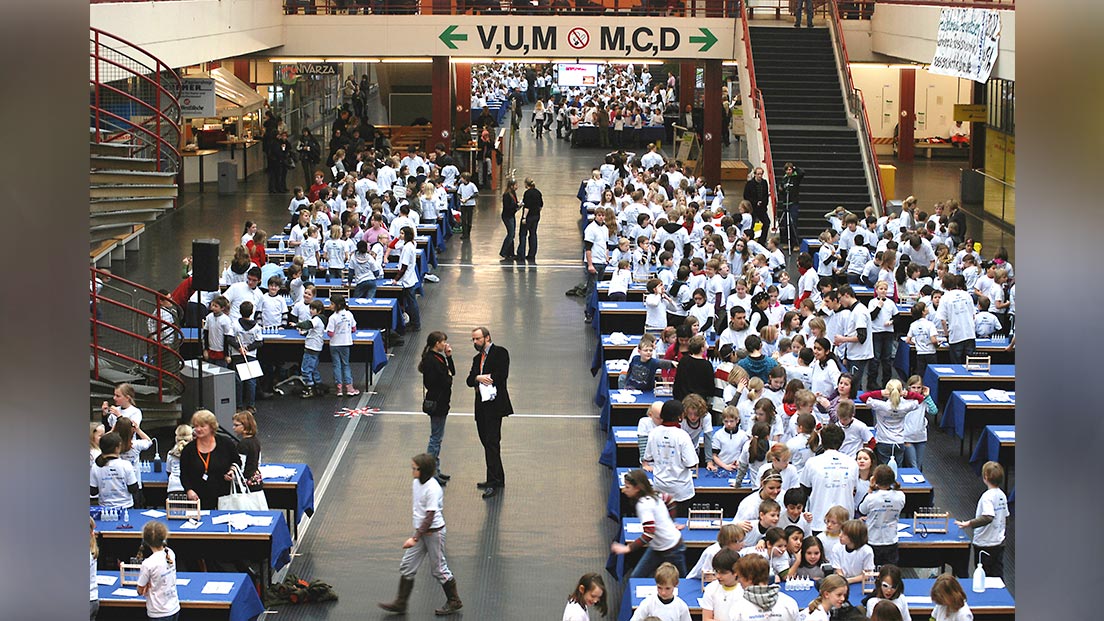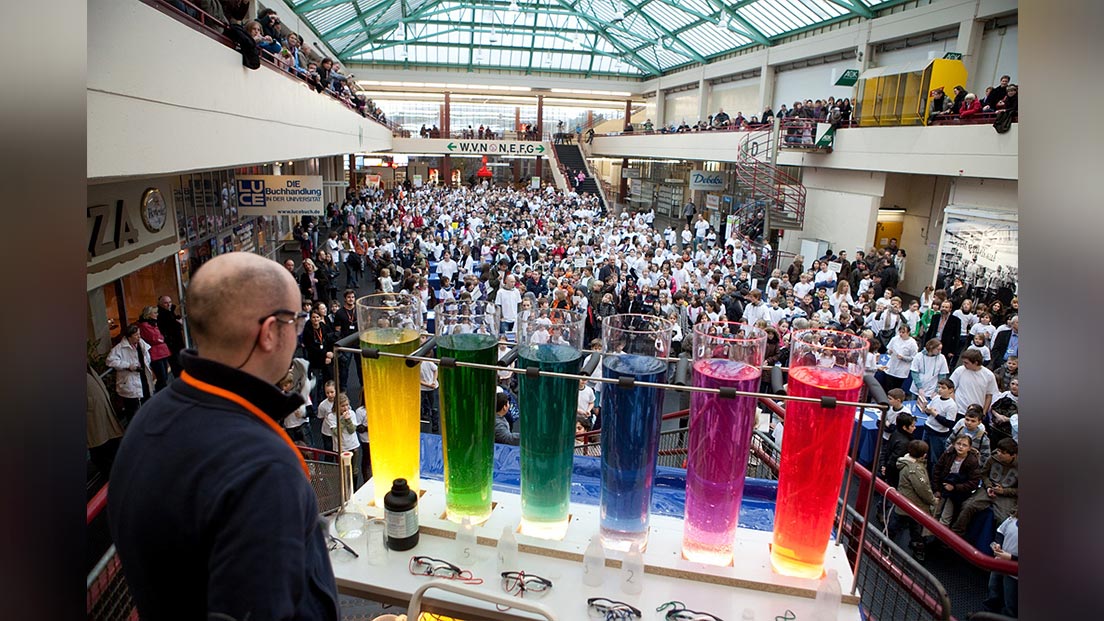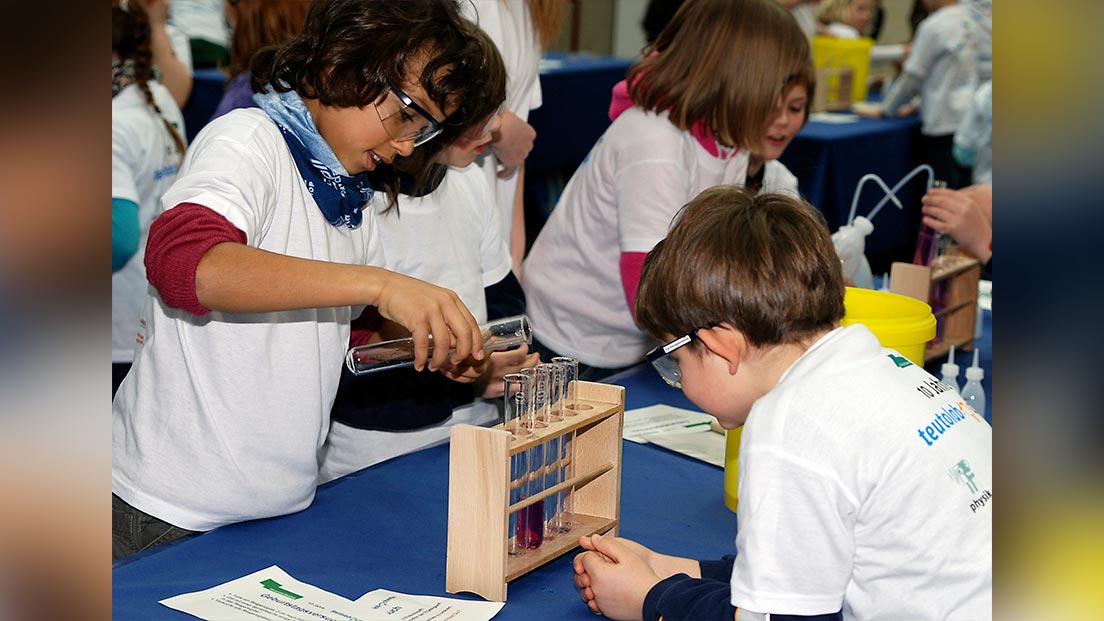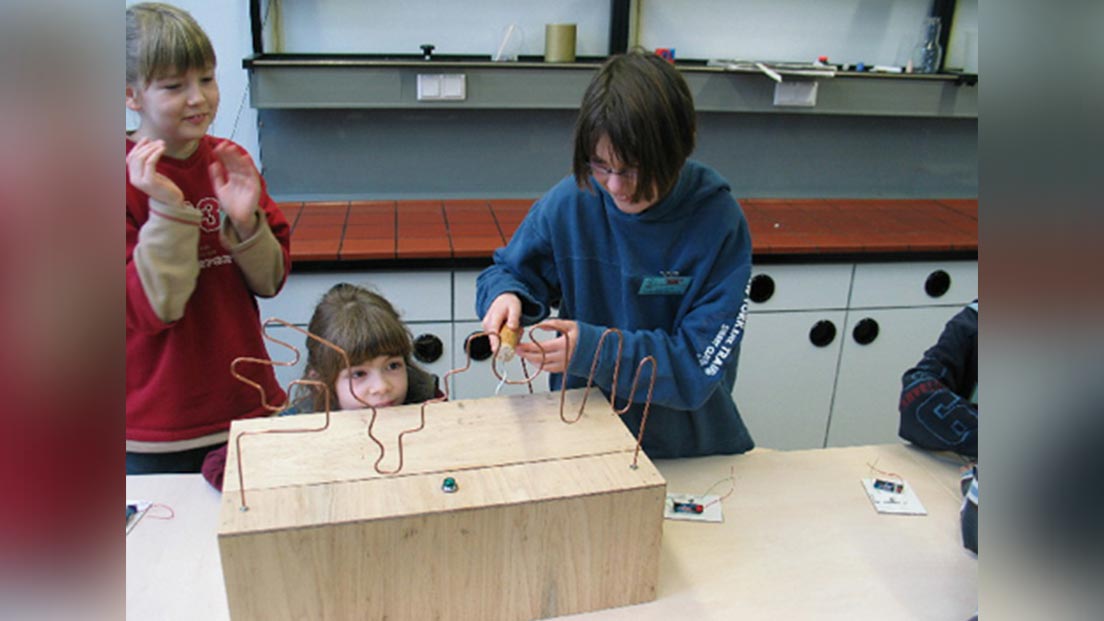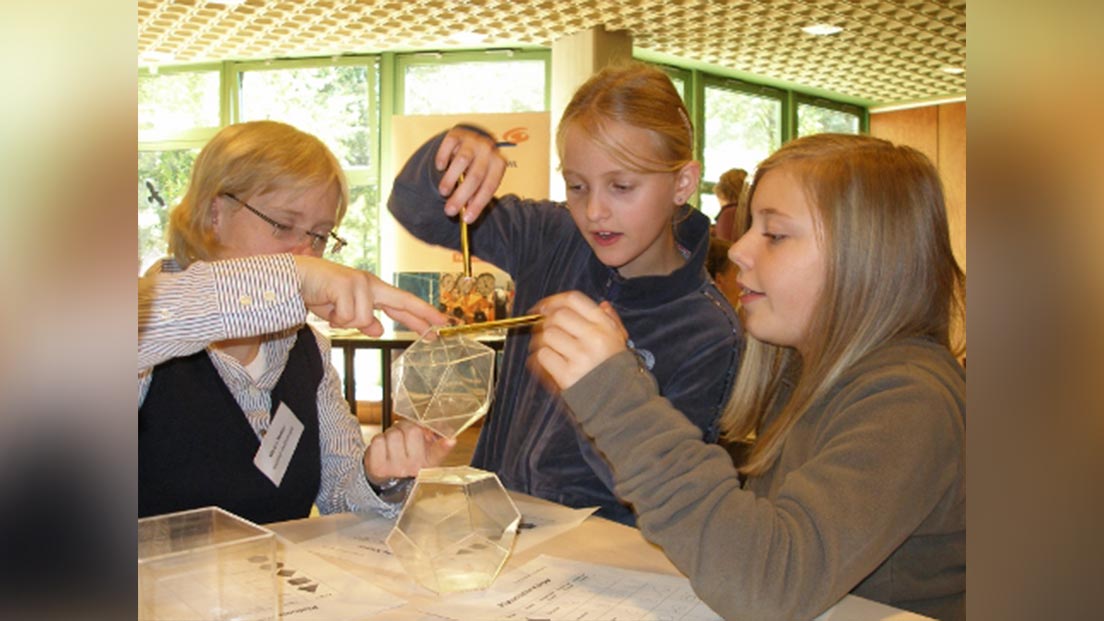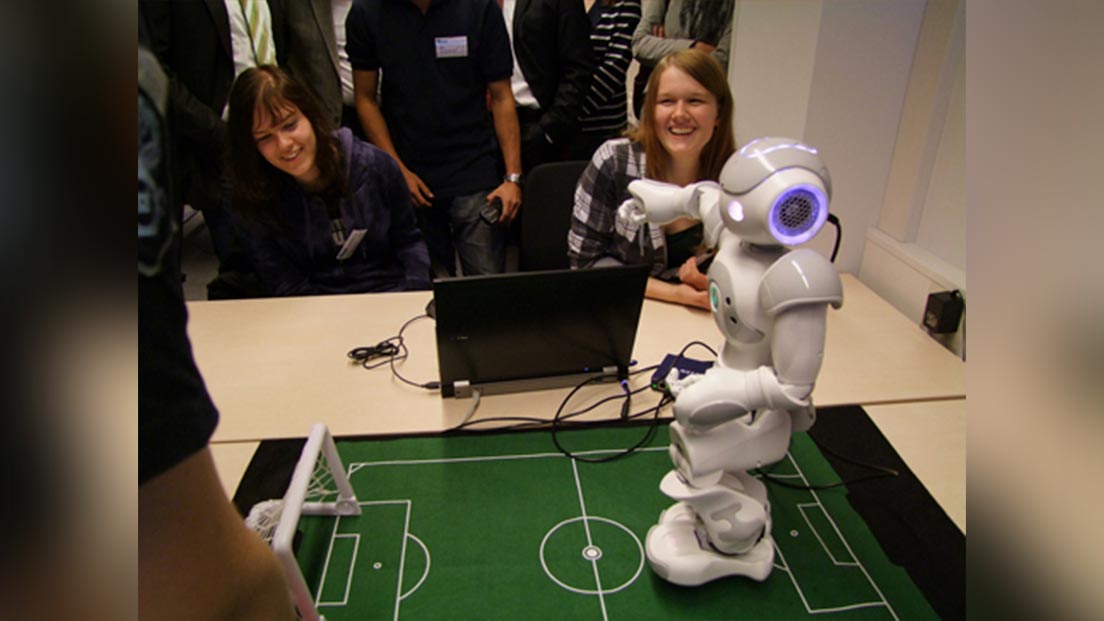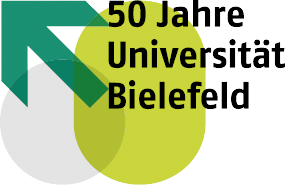–
Source: Universität Bielefeld
A win-win-situation
The idea was as simple as it was ingenious. Everybody benefits: Pupils conduct interesting research-related experiments and overcome their awe of the possibly unpopular natural sciences. The faculties of the natural sciences gain, because they ensure a long-term supply of young talent. In the medium term, partners from industry benefit from the ongoing recruitment of young scientists. The lab idea is also advantageous for schools, because they can offer their pupils and teachers accessible instruction in comparatively expensive subjects accompanied by didactic support, despite having limited financial resources themselves. Finally, it benefits the teacher-training students because they have the opportunity to demonstrate their didactical skills during their studies.
The teutolab Network
Not long after the founding of the teutolab Chemistry, it became apparent that the hands-on laboratory at the Faculty of Chemistry would not be able to cope with the high demand from schools – a total of 100,000 have pupils visited it since its founding – due to its limited spatial capacity. As a result, the teutolab Network was founded in 2002 with schools that make themselves available locally as satellite laboratories. The network, which received an award from the Stifterverband für die deutsche Wissenschaft (Donor’s Association for the Promotion of Humanities and Sciences in Germany), covers schools in the entire region, but also throughout North Rhine-Westphalia. Satellite laboratories have even been set up in Berlin and abroad, helping to ensure that the teutolabs at Bielefeld University continue to be a success story.
The teutolab family at Bielefeld University
The founding of teutolab-Chemistry was followed by the founding of teutolab Physics in 2003, teutolab Mathematics in 2005, teutolab Robotic at the Research Institute for Cognition and Robotics (CoR-Lab) in cooperation with the Cluster of Excellence “Cognitive Interaction Technology” (CITEC) in 2009, and finally teutolab-Biotechnology in 2011. The teutolabs are open to all year groups and school types and offer activities for specific target groups, for example pupils with disabilities or who are highly gifted.

